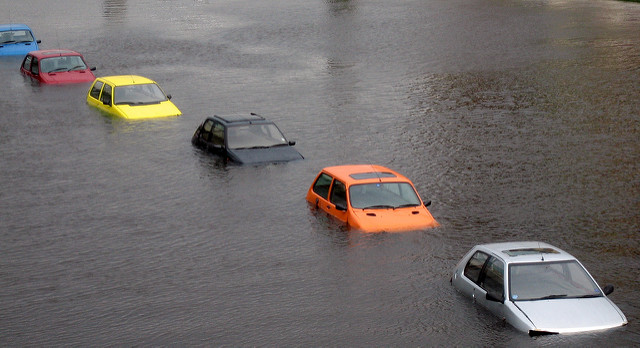
“…But what about Nutella?!”
by Bethan Pollington
Editor Update: This article was selected as runner up in our 2017 Blog Prize competition. Well done Bethan.
In 2016, research showed that 90 companies worldwide were responsible for 67% of carbon emissions, however, the rhetoric surrounding climate change rarely mentions this. Instead, it’s about the changes we, as individuals, can make. “Reduce, reuse, recycle” is drummed into us with the aim of ending climate change and, while individuals must play their part in protecting the planet for future generations, it is not sufficient. What is needed is fundamental change within corporations who prioritise PR and profits over everything else. This post shall first discuss the issues caused by individuals and then explore the fact that corporations need to change fundamentally.
Individual changes can only make a slight difference in climate change and global warming. 67% of people are concerned about global warming, leading to 43% of waste being recycled but there is more that can be done. Many people see recycling as ‘doing their bit’, but so many other decisions have devastating impacts on climate change: increased air travel, the proliferation of electronic devices, multi-car households, and the growth in products containing palm oil. This is where Nutella comes in; they boast on their own website how much Nutella is consumed each year, enough to build Big Ben 22,000 times. Many other companies proudly make similar boasts whilst ignoring the ecological damage they cause. Nutella uses palm oil, the mass production of which destroys ecosystems and causes air pollution along with many other issues. Nutella claim to use ‘sustainable palm oil’, but this doesn’t solve pollution issues, and companies such as Johnson & Johnson and Pepsi still use ‘dirty’ palm oil. Whilst individual choices do go some way to help, if you were to ask someone to cut out Nutella or Pepsi produced products from life the chances are extremely slim. It’s the instant versus deferred gratification theory (Mischel et al., 1972) seen in everyday decisions.
Consumers can only consume what is given to them, so perhaps those of us who do eat Nutella and drink Pepsi aren’t entirely to blame, instead, it’s those corporations that need to fundamentally change. This theory is known as ‘the treadmill of production’ (Schnaiberg, 1980). Fossil fuels are an obvious example of this treadmill of production. Consumers do not have the ability to choose any other form of energy until it is made available. The majority of households still, therefore, rely on fossil fuels to power their homes as sustainable energy is not widely available. In 1991, Shell produced a video warning of the dangers of fossil fuel usage but it wasn’t until governments forced change that their behaviour altered. In 2008 and 2009 their irresponsibility led to massive oil spillages, as well as general bad ecology in transportation and mining.
Since sociologist William Cotton and Riley Dunlap (1979) produced their landmark article advocating for acknowledgment of human societies’ dependence on natural systems, climate change research has come a long way. Also since then, it is estimated, half of all greenhouse emissions have been produced – which is “well past the date when government and corporations became aware” of the dangers of climate change. It is clear that big businesses refuse to make the change until they are left with no other choice from the government. Think about clothing companies: You cannot expect someone to buy ‘only British’ in order to protect the environment from air pollution when only 1 in 20 high street shops make their clothes in Britain! Brands such as H&M and Topshop collectively are the second most polluting industry after oil. Clothing companies claim it is the only way forward, and that producing clothes in Britain or closer to home would not be profitable. This is the issue: Companies would prefer to make profits and expand further rather than protect the environment. What many businessmen such as Charles Holliday and Amancio Ortega don’t acknowledge is that profit figures cannot keep expanding, businesses cannot keep exponentially growing – there has to be a limit to growth (Meadows et al., 1972).
To conclude, this post has discussed how individuals can (and are only willing) to help so much – anything that seems fundamentally too hard many refuse to do. Despite global warming concerns, suggesting a palm oil ban could be met with shock and whispers of “…but what about Nutella?!” However, perhaps this shouldn’t be the focus in climate change discourse. Instead, we need direct and instant change within the realm of capitalism from corporations to do much more to protect the environment for our children and helpless species. Only at that point can sociologists begin to even suggest societal structural changes to halt climate change completely.
References
Cotton, W. and Dunlap, R. (1979). ‘A New Ecological Paradigm for a Post-Exuberant Sociology’, American Behavioural Scientist, 24(1), pp.15-47.
Meadows, D., Meadows, D., and Randers, J. (1972). The Limits to Growth. New York: Universe Books.
Schnaiberg, A. (1980). The Environment: From Surplus to Scarcity. Oxford: Oxford University Press.
Walter, M., Ebbe E.B., Antoinette, R.Z. (1972). ‘Cognitvie and attentional mechanisms in delay of gratification’, Journal of Personality and Social Psychology, 21(2), pp. 204-218.

0 Comments